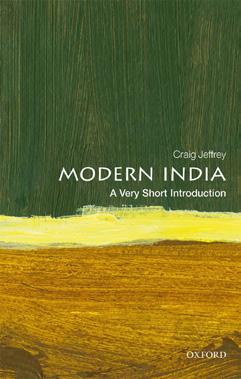
1 minute read
Pocketful of India
from 2018-04 Perth
by Indian Link
Craig Jeffrey ’s book on India packs a quick punch
BY RAKA SARKHEL LAHA
Modern India: A Very Short

Introduction by Craig Jeffrey. Oxford University Press, 2017
Apart of Oxford’s Very Short Introductions series, Craig Jeffrey’s Modern India is a short and serious account of present-day India. Jeffrey, who is director and CEO of the Australia India Institute, takes keen interest in India - focusing his research on youth, education and everyday politics in India, and has six books related to these themes under his belt.
This book, Modern India: A Very Short Introduction, begins and ends on a hopeful note - the first chapter called Hope narrates an incident of a traffic hold-up by a group of school children in Uttarakhand, demanding a better maths teacher at their school. “Sitting in a circle on the bridge with their arms locked together they chanted their main demand and sang popular Garhwali songs,” he says. Three weeks later, a new Maths teacher arrived at the school.
The last chapter, titled Youth, also reiterates hope for India’s future, propped on the shoulders of her large young adult population. “One in ten people in the world are an Indian youth aged under 30,” the author notes. All the country needs to do, in order to be able to dream through its youth, is give them a robust institutional and infrastructural environment in the form of strong educational and healthcare systems, and better employment opportunities.
However, primary education in schools is in a dire state, with “25 per cent of teachers absent from classes during spot checks across India… The Indian state has failed to raise spending on education, which remains roughly at 3%, well below the expenditure in many Western countries.” Higher education remains equally dodgy. Vocational learning suffers while rote learning with the myopic goal of clearing examinations still gets prime importance.
Further, the lack of employment and basic infrastructure continues to exacerbate poverty and social inequities, much like at the time of British imperialism.
Jeffrey also offers a brief account of





